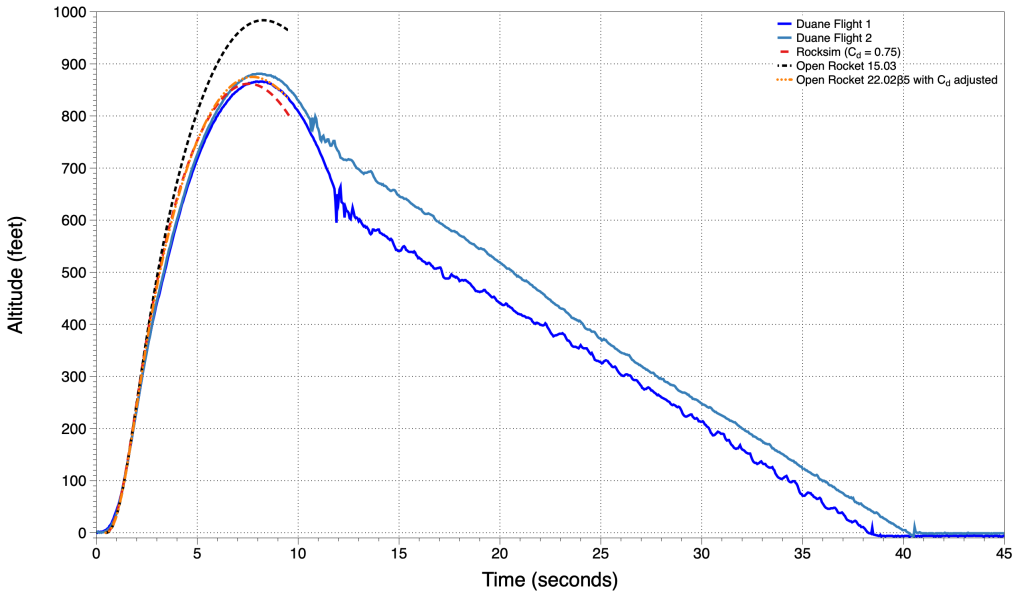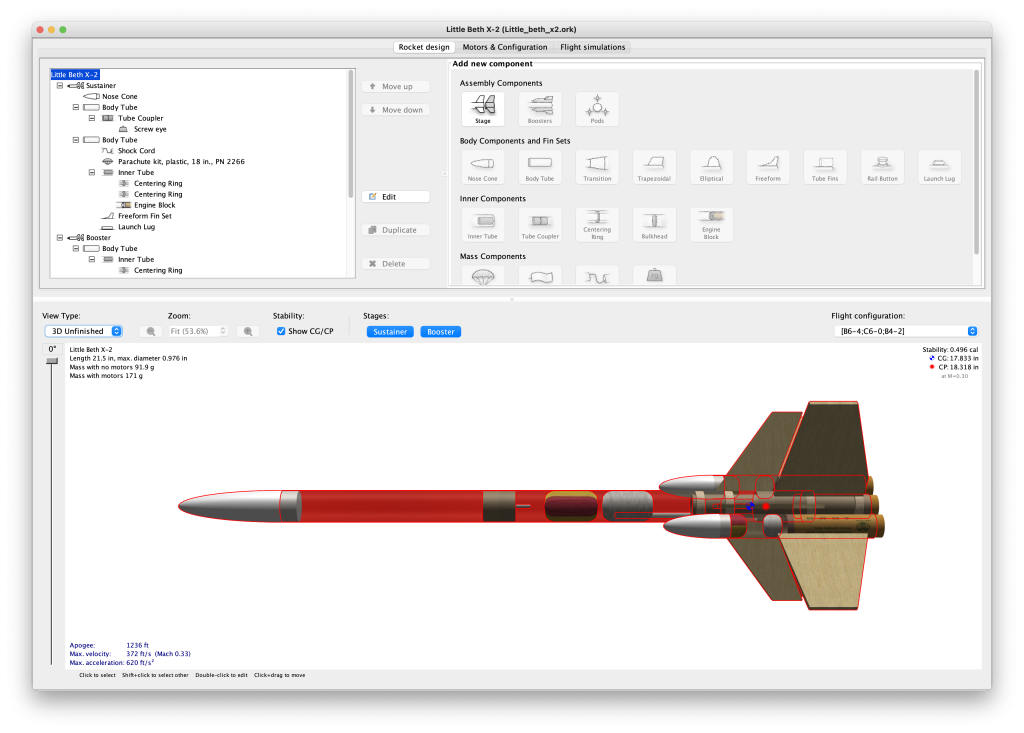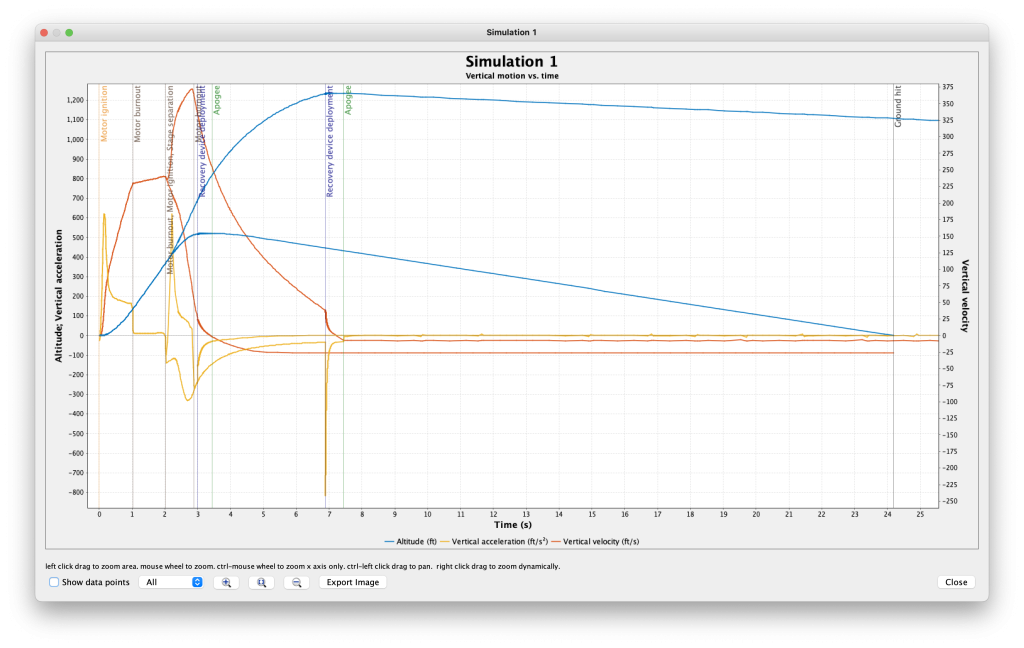Like many others involved with TARC, I’ve used OpenRocket for years – it’s easy to use, has a nice database and is quite suited for designing simple 3FNC or 4FNC rockets. But for more complex models – such as those with pods, “fins on fins” or elaborate clusters/stages, I use Rocksim. It can handle almost any design, plus you can easily adjust things like the rocket drag coefficient to match the rocket’s flight data. Couldn’t do that in OpenRocket 15.03, which is the last stable version, released almost 8 years ago.
Plus there’s the fact that OpenRocket uses JAVA, which often caused installation problems for users. Fortunately that changed when the developers created installers for the various operating systems (Windows, MacOS and Linux) that eliminated the need to futz with a separate JAVA installation. However, OpenRocket 15.03 uses JAVA 8 whereas modern operating systems have gone to JAVA 11; for example, Mac users running Ventura (the latest Mac operating system) can no longer run 15.03 because Ventura has no support for older versions of JAVA. The good news is that the developers have released a pretty stable beta version of OpenRocket (22.02.beta.05). It not only runs under Ventura and other operating systems, but also sports some new capabilities previously found only in Rocksim. I’m going to touch on a couple of these, the first being the ability to manually set the rocket’s drag coefficient.
After the Geezer TARC launch, I received the altimeter profiles from the flights of Duane’s rocket as well as a question – “Why are the OpenRocket simulations so far off from the actual flight profiles?” The answer is pretty well known – OpenRocket 15.03 controls drag by setting the “roughness” of the component surfaces, i.e., “Smooth Paint”, “Unfinished”, etc. It tends to underestimate drag of the components and the model as a whole, resulting in simulated peak altitudes that are too high, by a significant amount. In fact, we tell our TARC teams to try for simulated altitudes 100 feet higher than the TARC goal in order to compensate for this issue. However, the new 22.02 version of OpenRocket allows you to manually set the drag coefficients of the various parts, and I decided to test this against Duane’s flight data.
There are 5 curves plotted in the below graph. The 2 blue curves are the flight profiles from the onboard PNUT altimeters, whereas the red dashed curve is from a Rocksim simulation with the drag coefficient set to the standard 0.75. It tracks pretty well with the data. Note that the OpenRocket 15.03 curve predicts an altitude way too high, by about a hundred feet. But when I import Duane’s design into OpenRocket 22.02 and play with the drag coefficient, I get a nice performance match. The advantage in doing this is that I can now accurately estimate how this model will perform with different motors or weather conditions. And so can TARC teams with their rockets – without having to shell out the bucks for Rocksim.
The other capability I learned from the NARCON talk is how to use pods and boosters. To test my knowledge, I created a simulation of the Estes Little Beth X-2, an old Design of the Month model that has a clustered (3 motors) lower stage with dual parachute recovery mated to a single motor upper stage. There would have been no way to realistically model this rocket in 15.03, but it was a snap to do in 22.02 – took all of 30 minutes. I was able to model all the rocket components and the simulation handled all aspects of the flight, including the booster parachute deployment from the side pods.
Very nice!
So please download the latest beta version of OpenRocket. While it doesn’t have all the capabilities of Rocksim, it is catching up thanks to a team of dedicated volunteer developers. Also, you can’t beat the price!
Link to OpenRocket 22.02.Beta.5: https://openrocket.info/downloads.html?vers=22.02.beta.05





